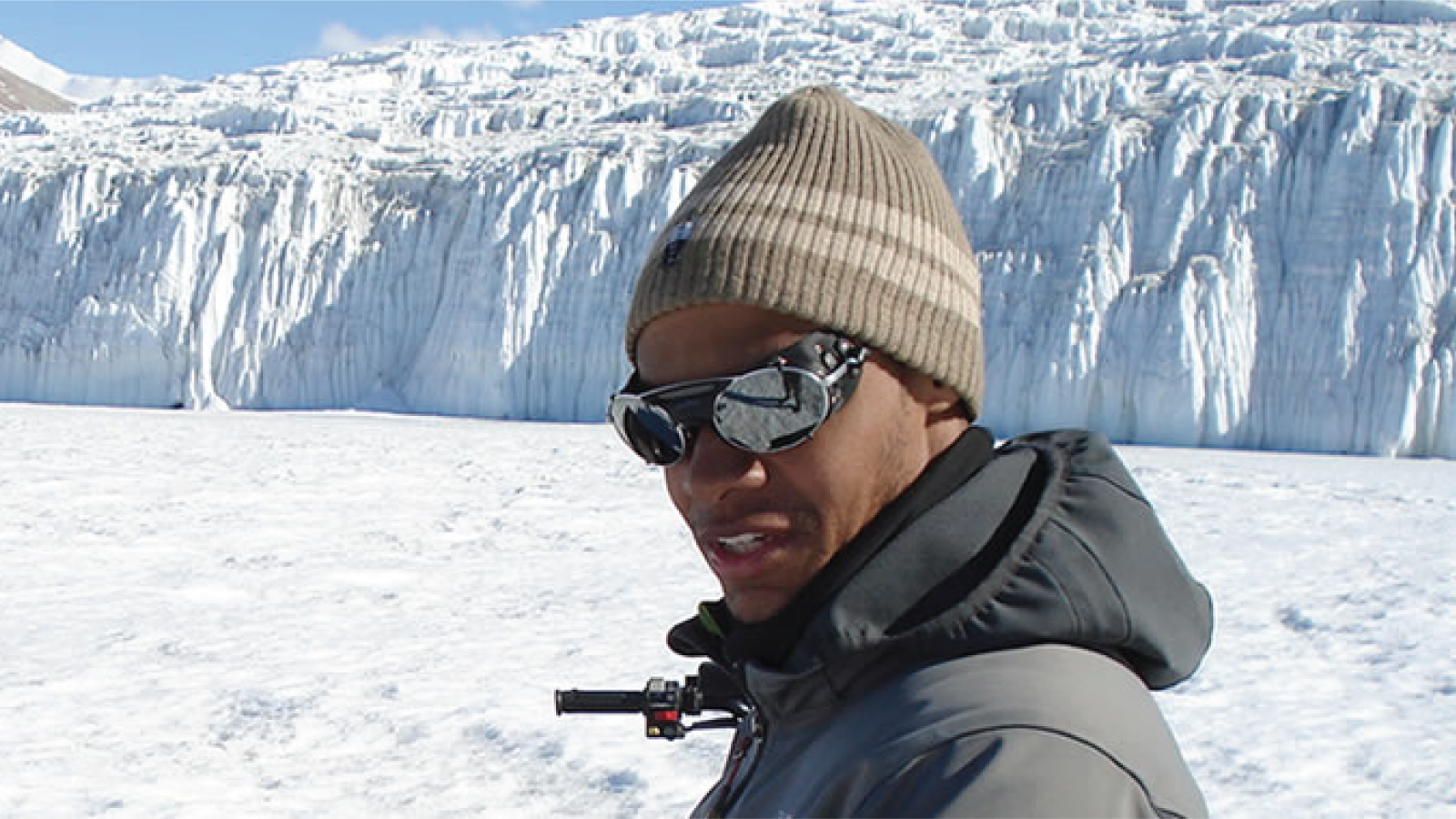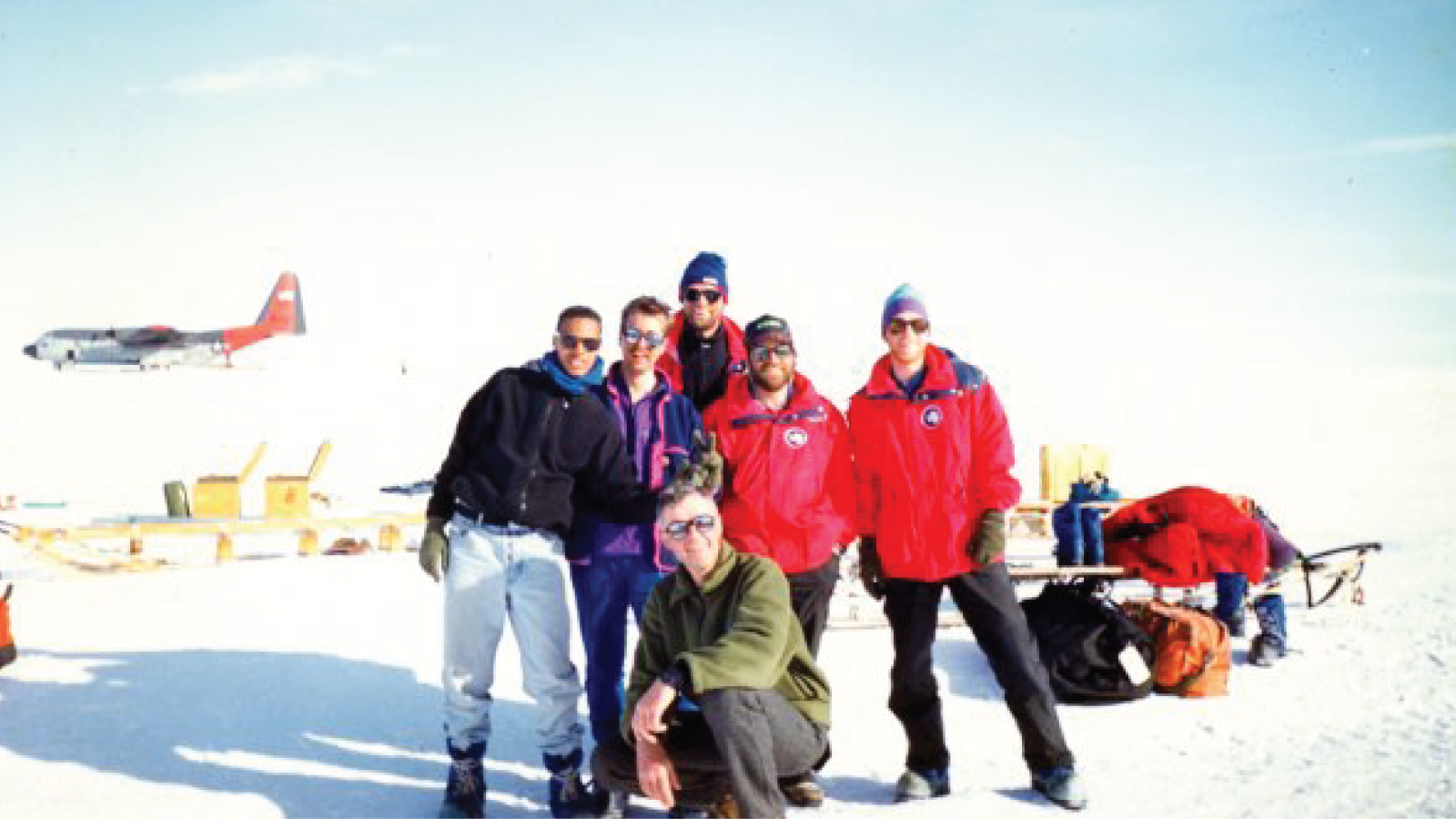Derrick Lampkin
Derrick Lampkin earned his BS from SES in 1995 and now works as an Assistant Professor in the Department of Atmospheric and Oceanic Sciences and the Department of Geology at the University of Maryland
Contact: dlampkin@umd.edu
"I would encourage young scholars to commit themselves to ethical behavior and respect the basic tenants of scientific inquiry and exploration by adhering to ethical practices."
Where has your degree taken you?
I have participated in three research expeditions to Antarctica and Greenland. I deployed to Antarctica in austral 1993 and 2011. I conducted research on the west-central Greenland Ice Sheet in 2015. I have studied volcanic processes on the Moon and Mars while interning as a NASA funded researcher at the Center for Earth and Planetary Sciences, Smithsonian. I conducted research on seasonal snow cover the Upper and Lower Colorado River Basins in the western US. I was a senior research scientist at the NASA Regional Earth Science Applications Center (RESAC) and the Center for Sustainability of semi-arid Hydrology and Riparian Areas (SAHRA). I was involved in managing the processing of satellite-derived estimates of snow covered fractional area and derivation of basin-scale snow water equivalent. I also participated in the NASA sponsored Cold Lands Processes Field Experiments (CLPX) conducting field work in the Colorado Rockies. I have supervised graduate students who have completed degrees and research on supraglacial processes on the Greenland Ice Sheet and surface melt dynamics over Antarctic Ice Shelves. I now lead the University of Maryland Ice Group and conduct NASA and NSF funded research on the large ice sheets.
How do you feel your experience, specifically as an SES/geology student at OSU, prepared you for your career or life in general?
OSU and the Department of Geological Sciences presented me with many lessons during my residency. I was rigorously trained in the department and specifically at the Byrd Polar Research Center (BPRC). I owe a great debt of gratitude to mentors and faculty who took an invested interest in my success. This includes Sue Shipley, Kenneth Jezek, the late Ian Whillans, William Ausich, Peter Webb, Larry Krissek, Hal Noltimier, Dr. Utgaard, and many others. Matriculating through the program also taught me several life lessons which resulted in enhancing my personal growth. I also experienced many challenges within the program as one of few African-American students. I was faced with unabashed racism and prejudice and those experiences taught me I had the strength and tenacity to overcome ignorance and adversity.
What is your favorite memory as a student?
There were several notable and profound experiences I had at SES. Most significantly was my first deployment to west Antarctica, under the supervision of the late Dr. Ian Whillans. The first moment I stepped off of the C-17 flight and my eyes adjusted to the overwhelming bright light and cold of the Antarctica landscape was both physically and emotionally overwhelming. I was brought to tears for having made it to such a wonderful land. I had many such experiences during this particular deployment. Late one night I could not sleep and went for a brief walk in the middle of the Austral summer night while at a camp in the Antarctic Ice Streams. I was in the Antarctic twilight the ornately formed crystals of ice move over the cold, white ice sheet surface like a fog made of sparkling prisms producing the most memorizing plasma of brilliant shards of colored light. Additionally, my sojourn with others from Byrd Surface Camp into the defunct Byrd sub-surface camp was an adventure of a lifetime. We were the first to enter this base under the ice since the base was decommissioned in the late 1960’s. It was an experience that is a hallmark of my life and I often tell this story in my classes and during talks. I still possess items extracted from this base as symbols of historic scientific exploration in Antarctica.
What advice do you have for current and future students?
There are many challenges that plague our world and most notably our discipline. I think the most profound are ethical challenges. I would encourage young scholars to commit themselves to ethical behavior and respect the basic tenants of scientific inquiry and exploration by adhering to ethical practices. Do not be enticed to participate in unethical behavior for political or material gain. For example side-lining colleagues who work on similar research in the manuscript and proposal review process is a tragedy for our community. These infractions are not worth the gain and ultimately degrade the integrity of our enterprise.


